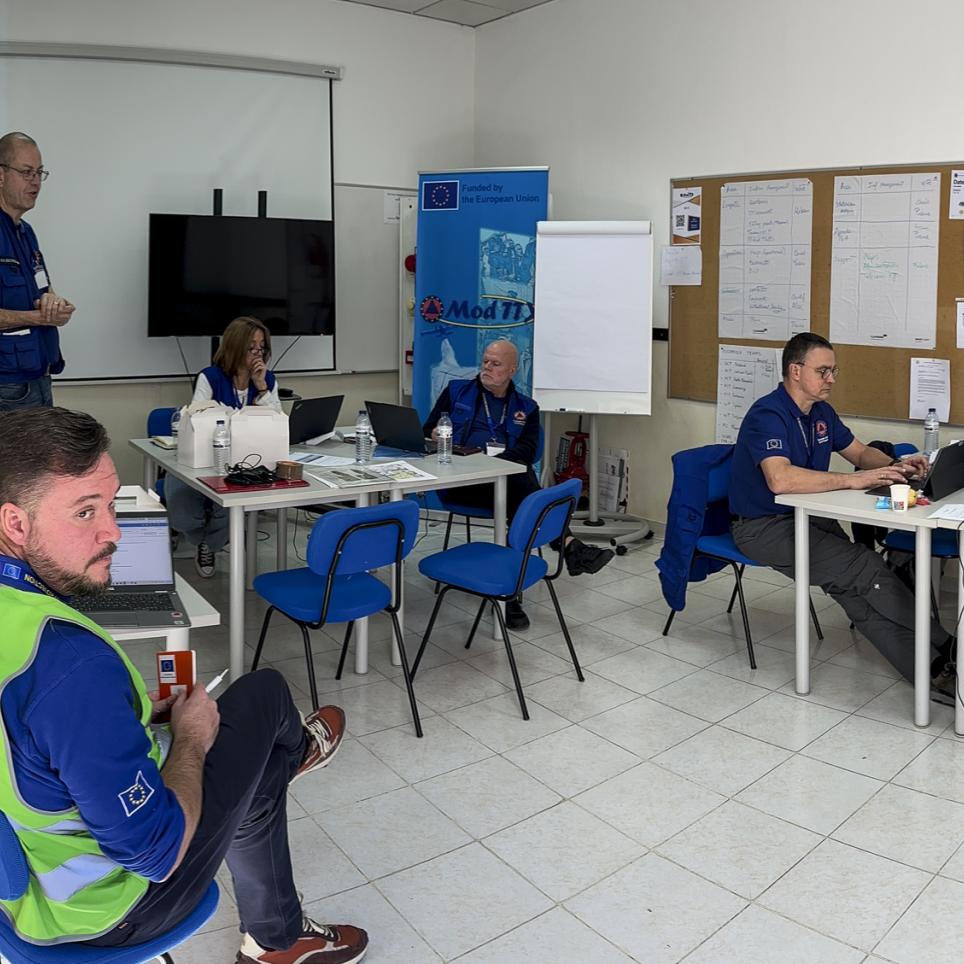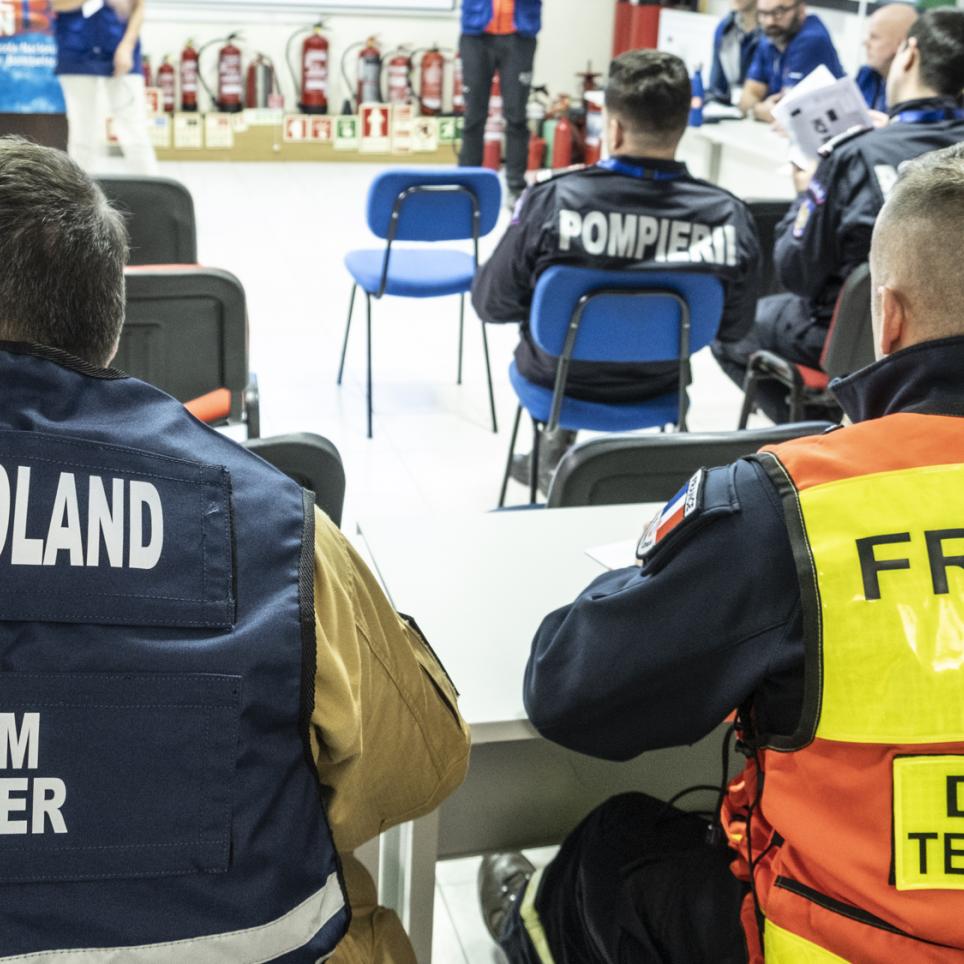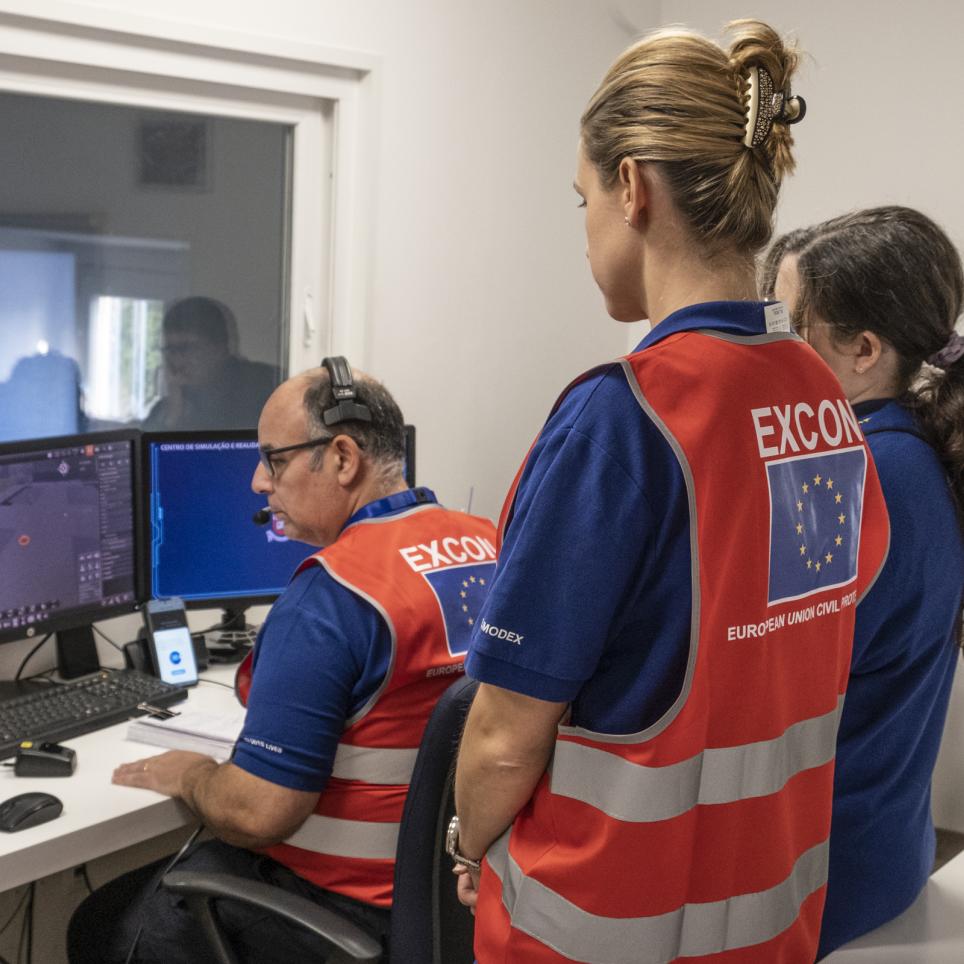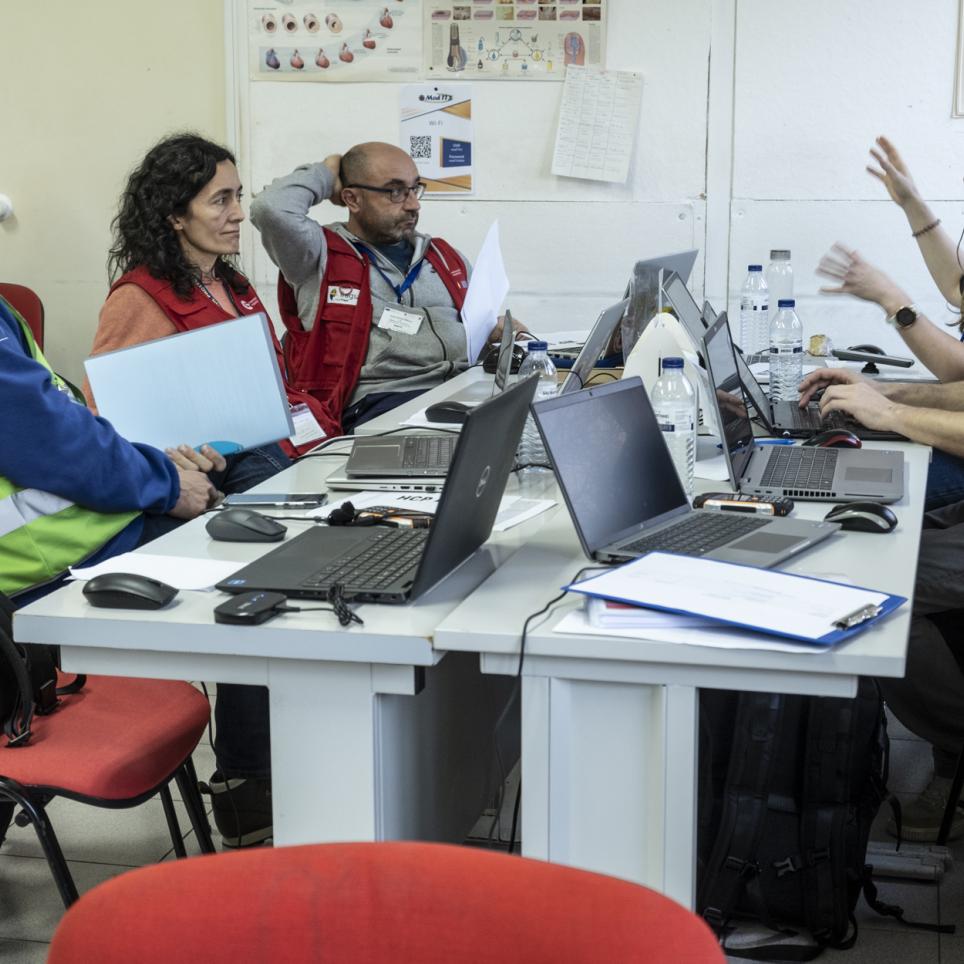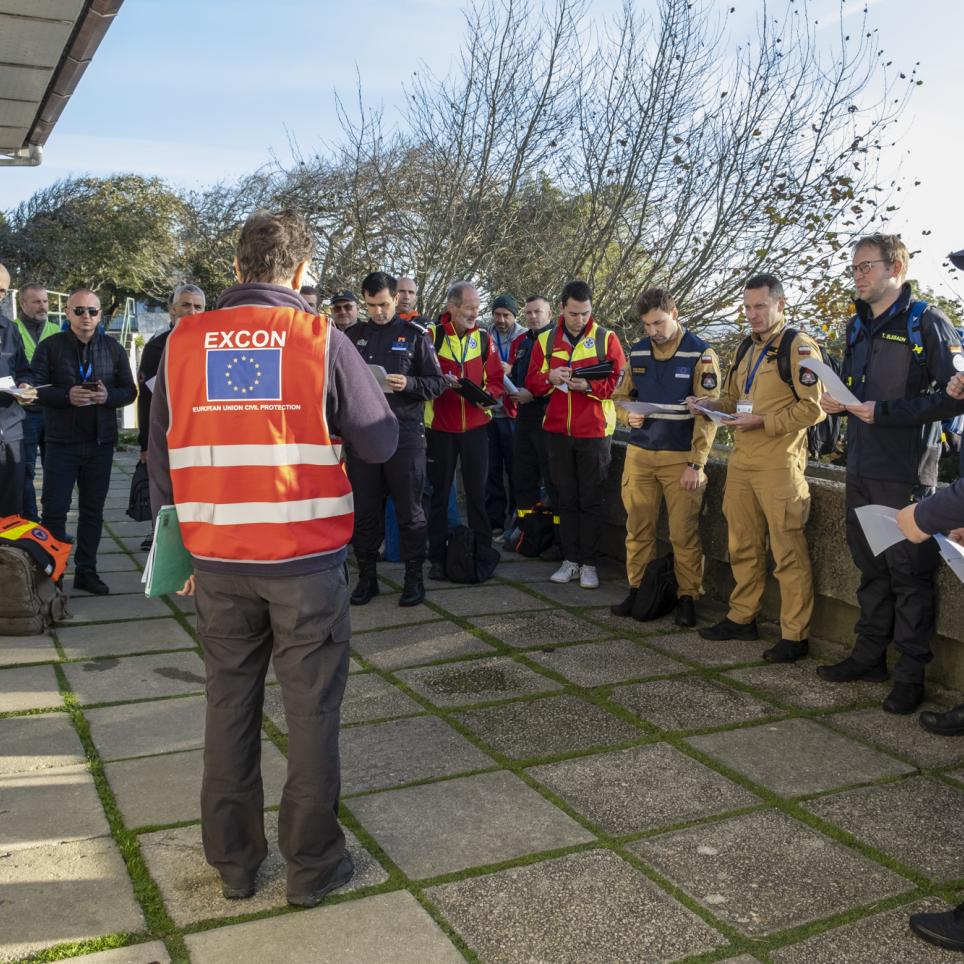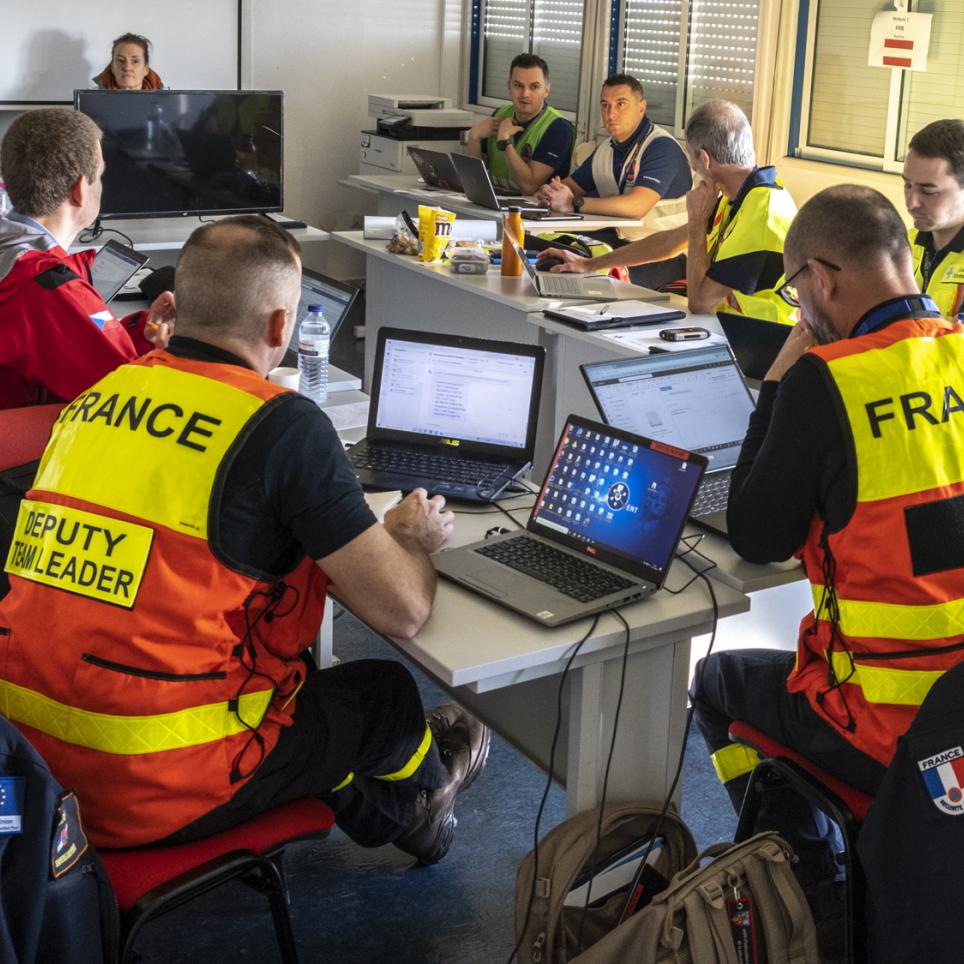The second Modules Table-Top Exercise (ModTTX2) took place from 25th to 29th November 2024 in Sintra, Portugal. It was conducted at the National Firefighter School, Escola Nacional de Bombeiros, and emphasized a flood scenario.
There were 28 participants from 13 different countries comprising of ten Modules Key Personnel teams, an EUCP Team and a TAST who took part in this exercise. Including Exercise Control (EXCON), certifiers, trainers, role players and support staff, about 66 persons were involved in the exercise. It was hosted by the Escola Nacional de Bombeiros (ENB-PT), in cooperation with the rest of the consortium, formed of the German Federal Agency for Technical Relief (THW-DE), the Federal Public Service Home Affairs – Directorate-General for Civil Protection (DGCP-BE), the Administration of the Republic of Slovenia for Civil Protection and Disaster Relief (URSZR-SI), and the Ministry of the Interior of the Republic of Croatia (MUP).
The Modules present were Flood Rescue using Boats (FRB) from Austria and the Czech Republic; Flood Containment (FC) from France; Water Purification (WP) from Spain and Belgium; and High Capacity Pumping (HCP) from Latvia and Lithuania (BaltFloodCombat), Romania, North Macedonia, Germany and Poland.
During the exercise the participants had the opportunity to coordinate and conduct a real VIP visit as part of the scenario. The Civil Protection Secretary of State accompanied by the National Firefighter School’s President joined in on one of the exercise days and received a briefing by the modules and EUCPT on the current situation, as well as received an overview on the available capacities that were supporting the disaster areas (in the exercise scenario).
The scenario was flooding along the Tagus River and its tributaries, with the most affected areas being Loures, Constancia and Colares. After a long period of heavy rainfall, the area was again hit by a torrential downpour, causing severe flooding. These floods reached the levels of the 50-year cycle, and the meteorological situation that caused this emergency lasted for more than 5 days in the Iberian Peninsula, leading the local government to request international assistance through the UCPM.
